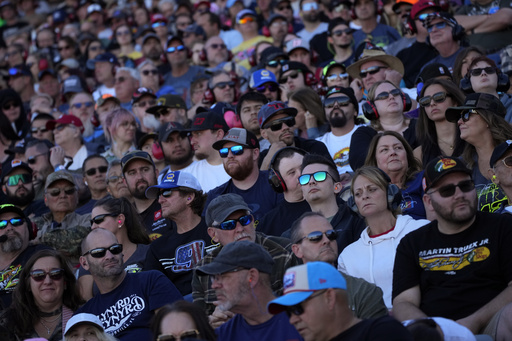
CHARLOTTE, N.C. — The recent success of Joey Logano in the NASCAR Cup Series has sparked renewed discussions about the existing playoff format within the sport. Following Logano’s third championship victory this month, questions are being raised concerning whether the current system effectively identifies deserving champions. Despite Logano winning four races this season, he only managed 13 top-10 finishes in a total of 37 races, suggesting that his performance was not always at the top level.
Logano’s journey included a series of fortuitous events—most notably, a dramatic fuel-saving victory in Nashville that saw him triumph through five overtime laps, enabling him to secure a place in the postseason. Strangely, he was eliminated during the second playoff round but was able to re-enter after another driver’s vehicle was deemed illegal.
The nuances of Logano’s championship run have left many of his fellow drivers dissatisfied with the system and eager for modifications, expressing a spectrum of ideas from slight adjustments to complete overhauls. Denny Hamlin, who drives the No. 11 for Joe Gibbs Racing and is a co-owner of the 23XI Racing team, opined that improving the significance of the regular season should be a priority. He proposed enhancing the bonus points awarded to drivers during this period.
Hamlin pointed out the cases of drivers like Christopher Bell and Kyle Larson, emphasizing that they deserve a more substantial advantage to navigate the playoff rounds effectively. He expressed concern that the regular season, consisting of 26 races, is not adequately reflecting a driver’s capability to contend for the championship. “It’s not something you want,” he added, referring to the inconsistency of outcomes in the playoff format.
He noted that over the past three years, Team Penske’s champions, including Logano and Ryan Blaney, have managed to excel without high regular-season performance, which he deemed unsatisfactory. NASCAR currently favors its playoff system primarily due to its ability to create thrilling, high-stakes moments as the season comes to a close. However, the sanctioning body remains open to adjustments if it would enhance the competition.
Christopher Bell acknowledged the excitement generated by the playoff races but suggested that revising the points structure may help ensure deserving teams make it to the finals. Ryan Blaney emphasized the need for racers to adapt to existing rules but expressed that in his ideal scenario, the top 16 points earners in the regular season would qualify for the playoffs. He advocated for significantly increased points for race winners and suggested that the regular-season champion should receive an extra 30 points.
Blaney also proposed reducing the number of elimination races, suggesting a system where the field narrows to eight drivers after five playoff races, allowing for fierce competition over the championship across the final five races. He remarked that this would help maintain equitable competition without one driver dominating the conclusion of the season.
In contrast, Logano dismisses the calls for alterations with a bemused smile, having firmly stated his position against changes even after his win in Phoenix. When questioned about potential reforms during the awards ceremony in Charlotte, he asserted, “Nothing, personally. I wouldn’t change a thing,” declaring the current format to be “super entertaining.”
Given his track record of three championships since 2018, Logano’s contentment with the existing system is hardly surprising. He urged everyone to recall the initial reason for the implementation of the current format, which stemmed from fan dissatisfaction with the old system. According to Logano, the changes have since been well-received, and he questioned why the conversation was shifting back to the need for adjustments. “C’mon, guys. Geez,” he concluded, urging for a continued appreciation of what the format has achieved.
